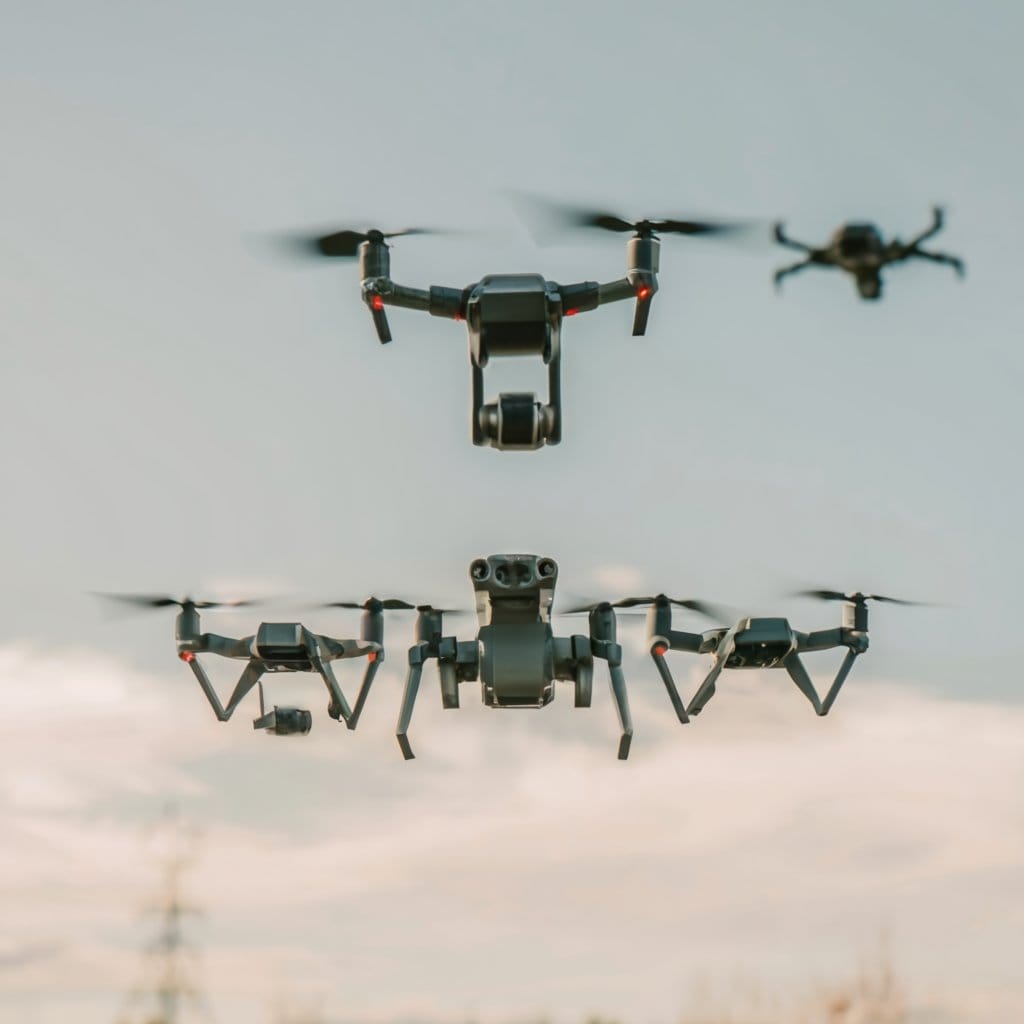Unveiling the transformative impact of industrial drones, this blog post delves into the realm of cutting-edge technology reshaping various sectors. From enhancing efficiency in agriculture to revolutionizing infrastructure inspections, industrial drones are at the forefront of innovation. Discover how these aerial marvels streamline operations, improve safety measures, and provide unparalleled data insights. This post navigates the intricate landscape of industrial drones, exploring their diverse applications and future implications. Stay tuned for a detailed exploration of how these unmanned aerial vehicles are shaping industries worldwide.
Key Takeaways
- Advantages of Drones: Drones offer cost-effective solutions, improved safety measures, and enhanced efficiency in various industries.
- Types of Industrial Drones: Understanding the different types of drones available can help businesses choose the most suitable option for their specific needs.
- Drone Imaging Applications: Utilizing drones for imaging purposes can provide valuable data for surveying, mapping, and monitoring tasks.
- Drones in Various Industries: From agriculture to construction, drones are revolutionizing operations by streamlining processes and increasing productivity.
- Commercial and Industrial Uses: Exploring the wide range of commercial and industrial applications of drones can inspire innovative uses within different sectors.
- Drone Technologies for Businesses: Staying updated on the latest drone technologies can give businesses a competitive edge and open up new possibilities for growth.
Advantages of Drones
Enhance Efficiency
Industrial drones enhance efficiency by implementing automated flight planning to streamline operations. They also utilize real-time data analytics for quick decision-making, improving overall workflow. Moreover, drones optimize payload customization for specific industrial tasks, ensuring precision and effectiveness.
Cut Down Costs
Drones help cut down costs by integrating cost-effective aerial inspections, reducing the need for traditional methods that are more time-consuming and expensive. They are employed in precision agriculture to reduce manual labor costs significantly. Drone technology is utilized to minimize downtime and operational expenses, making processes more cost-efficient.
Improve Safety
To improve safety in industrial settings, drones play a crucial role by enhancing worker safety through conducting remote inspections. They implement obstacle avoidance features to prevent accidents during missions, ensuring a secure working environment. Furthermore, drones are utilized for hazardous environment monitoring to guarantee worker safety and prevent potential hazards effectively.
Real-time Data
Drones provide real-time data solutions by allowing access to live video feeds for immediate situational awareness. They utilize real-time data transmission for instant analysis of critical information, enabling quick decision-making based on accurate insights. Moreover, drones implement data logging capabilities for post-mission analysis, facilitating continuous improvement and optimization of operations.
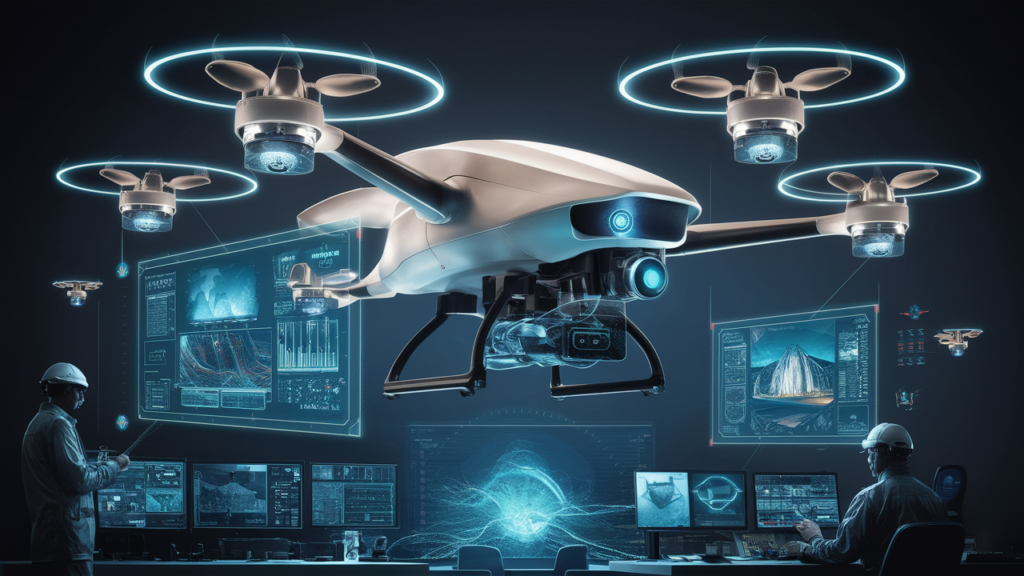
Types of Industrial Drones
Fixed-Wing Models
Fixed-wing drones excel in long-endurance flights, making them ideal for covering vast industrial areas efficiently. These models are commonly used for mapping and surveying missions, providing accurate data collection capabilities. With extended flight times and coverage, fixed-wing drones are essential for large-scale projects.

Multi-Rotor Options
Multi-rotor drones offer precise aerial inspections, particularly in confined spaces where maneuverability is crucial. Their quick deployment and agility make them perfect for tasks that require close monitoring and detailed observations. Multi-rotor drones also allow for versatile payload configurations, adapting to various industry needs seamlessly.

Hybrid Systems
Hybrid drones combine the advantages of fixed-wing and multi-rotor designs, catering to a wide range of mission requirements. By leveraging both technologies, these systems provide increased flight flexibility and endurance, enhancing operational efficiency. Hybrid drones enable a seamless transition between different operational demands, offering adaptability and versatility in industrial settings.
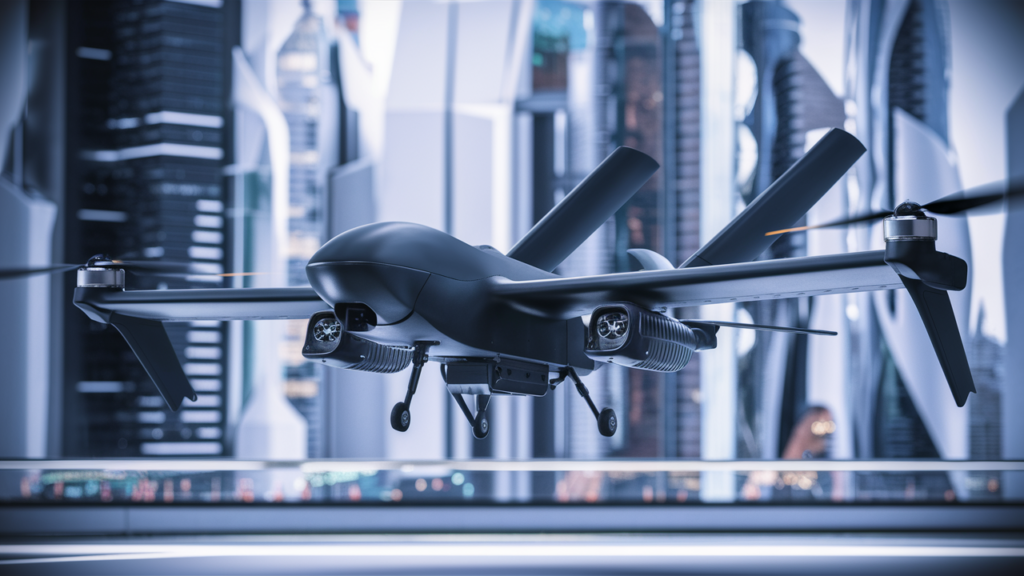
Drone Imaging Applications
Mapping and Surveying
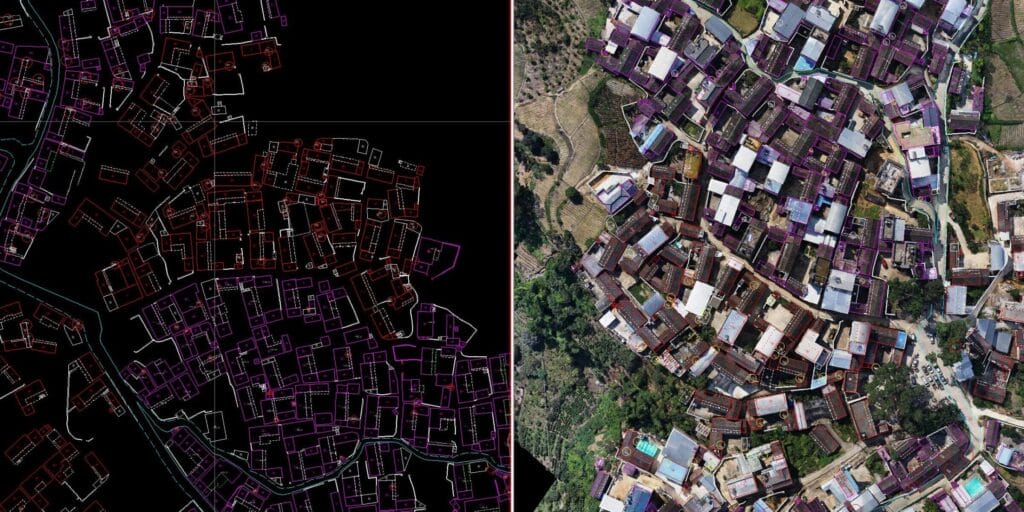
Drones play a crucial role in high-resolution aerial mapping of industrial sites, providing detailed insights from above. They enable efficient surveying of large areas with pinpoint accuracy, enhancing data collection processes. By utilizing drones, industries can optimize mapping and surveying procedures, saving time and resources.
Inspection and Monitoring
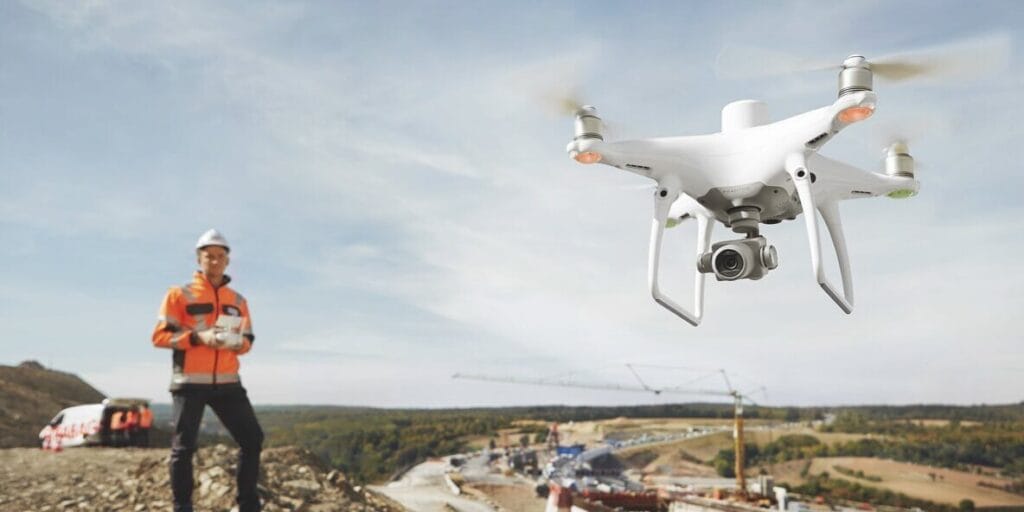
Industries can conduct detailed inspections of infrastructure using drones, reaching inaccessible areas effortlessly. Drones facilitate continuous monitoring of industrial assets, ensuring real-time data on equipment performance. Their use allows for rapid identification of maintenance needs in hard-to-reach areas, enhancing operational efficiency.
Agriculture Insights
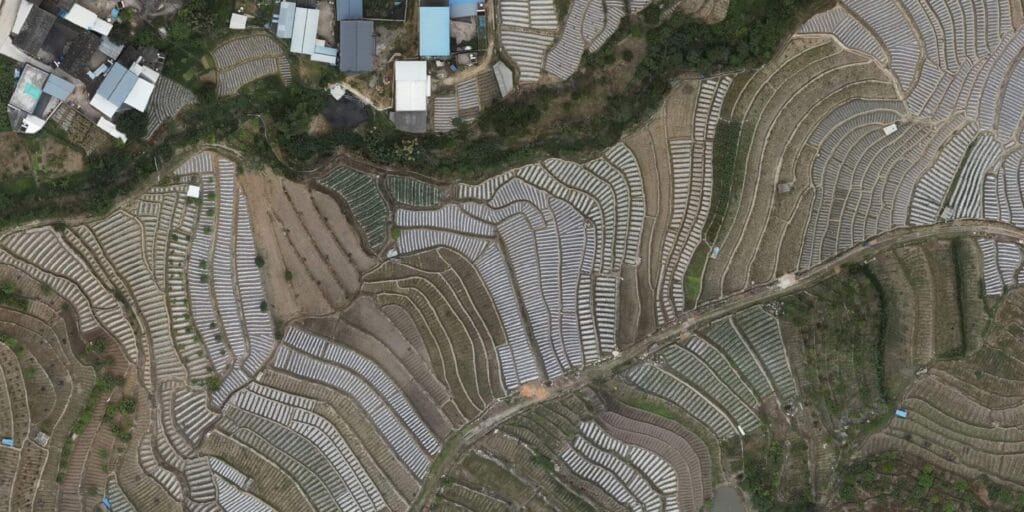
In agriculture, drones are instrumental in crop health monitoring and optimizing yields through data-driven insights. Precision agriculture practices in vast farming areas benefit from drone implementation, improving resource management. Aerial data collection and analysis help optimize agricultural operations, leading to increased productivity.
Security Surveillance
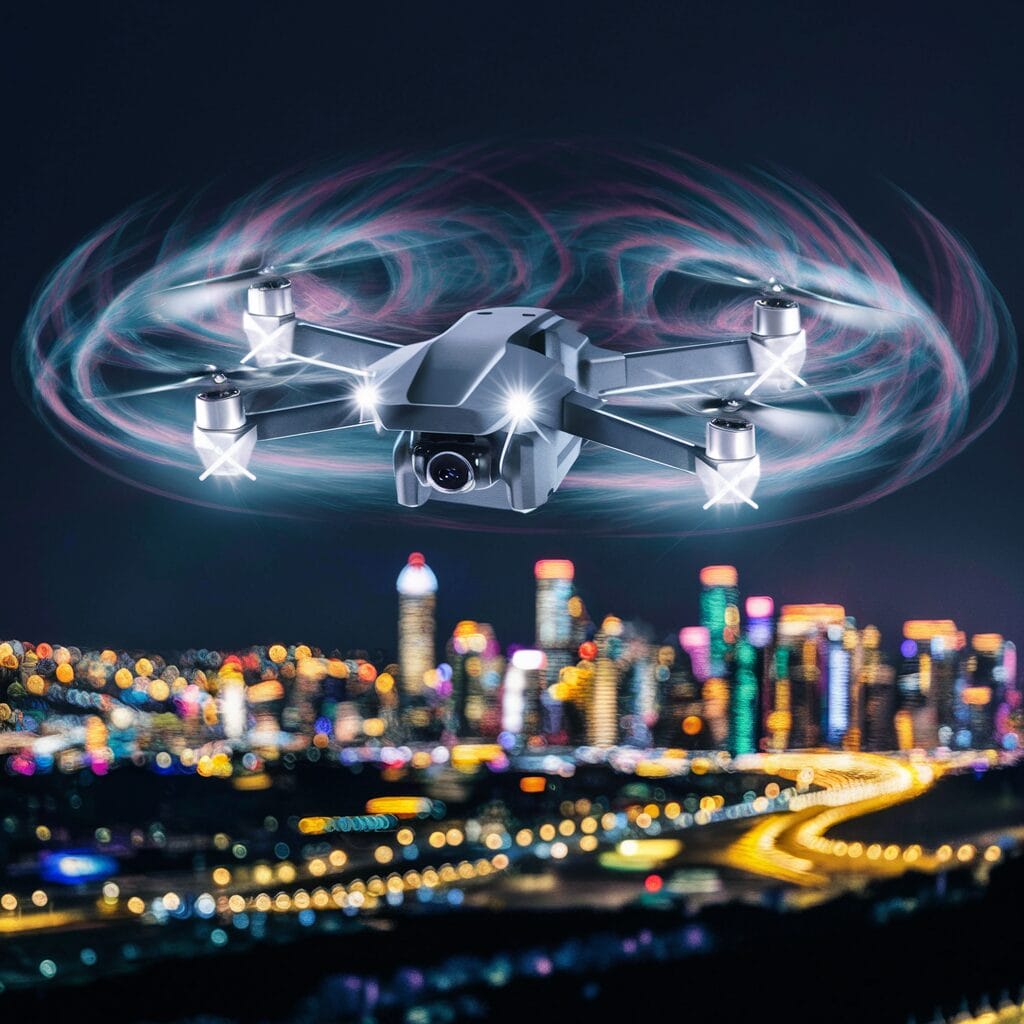
Drones enhance security measures by providing real-time surveillance, offering a bird’s eye view of industrial premises. They aid in perimeter monitoring and intruder detection, bolstering security protocols. Rapid response capabilities and continuous monitoring make drones invaluable in safeguarding security-sensitive areas.
Drones in Various Industries
Energy Sector
Drones revolutionize the inspection of power lines and energy infrastructure, enhancing efficiency and safety. By employing thermal imaging, drones detect energy leaks and faults swiftly. Asset monitoring in the energy sector is optimized through drone-based solutions.
Construction Sites
Aerial surveys conducted by drones aid in tracking progress on construction sites accurately. Drones play a crucial role in safety inspections and compliance monitoring during construction projects. In construction planning, drones are utilized for 3D modeling and site mapping to improve efficiency.
Agriculture Fields
In agricultural fields, drones are essential for irrigation management and soil analysis, ensuring optimal crop growth. They contribute significantly to pest control monitoring and crop health assessment. Precision farming techniques are enhanced through drone-enabled practices, leading to optimized crop yields.
Public Safety
Drones play a vital role in enhancing public safety by aiding in search and rescue operations effectively. Disaster response efforts are expedited with drones used for emergency situation assessment. Moreover, drones are implemented for crowd monitoring and event security in various public spaces.
Commercial and Industrial Uses
Delivery Services
Drones have revolutionized delivery services by offering efficient and rapid transportation solutions in urban areas. These unmanned aerial vehicles can navigate through congested city streets, avoiding traffic delays. By implementing drones, companies can ensure timely deliveries, enhancing customer satisfaction. drones are ideal for last-mile delivery services to remote locations where traditional transport methods face challenges. Their ability to reach inaccessible areas quickly makes them a valuable asset for delivering essential goods to remote communities. Furthermore, businesses can optimize their delivery logistics by integrating drone-based transportation solutions into their operations.
Environmental Monitoring
In the realm of environmental monitoring, drones play a crucial role in conducting environmental impact assessments through data collection from various landscapes. These aerial vehicles provide researchers with valuable insights into environmental changes over time. Moreover, drones are instrumental in wildlife monitoring and habitat conservation efforts. By using drones, conservationists can track animal populations, monitor habitats, and detect any illegal activities threatening ecosystems. Drones also aid in pollution detection and ecological research in sensitive areas where human intervention may be limited.
Media and Filmmaking
The integration of drones has transformed the landscape of media and filmmaking, offering unique perspectives for aerial cinematography and creative filming techniques. Filmmakers leverage drones to capture breathtaking shots from elevated angles, adding depth and visual interest to their projects. Moreover, drones are utilized for live event coverage and broadcast productions, providing audiences with immersive viewing experiences. By incorporating drones into filmmaking processes, creators can optimize their storytelling capabilities through visually compelling narratives that engage viewers on a whole new level.
Drone Technologies for Businesses
Sensors and Cameras
Industrial drones leverage advanced sensors to gather precise data essential for various industrial applications. These sensors enable drones to collect accurate information, enhancing operational efficiency. The integration of high-resolution cameras allows for detailed aerial imaging and analysis, providing businesses with valuable insights into their operations. By optimizing mission outcomes through the use of specialized sensors and cameras, industrial drones can deliver exceptional performance in diverse settings.
AI and Machine Learning
The implementation of AI algorithms in industrial drones facilitates autonomous flight control and data analysis. AI technology empowers drones to make intelligent decisions during flight operations, enhancing overall efficiency. By utilizing machine learning, businesses can achieve predictive maintenance capabilities and detect anomalies in real-time. This optimization of drone performance through AI-driven decision-making ensures seamless operations and improved productivity in industrial settings.
Autonomous Flight
Industrial drones are equipped with features for autonomous flight, allowing for pre-programmed mission execution without continuous human intervention. By leveraging this technology, businesses can streamline their operations and reduce manual workload significantly. The utilization of waypoint navigation enables automated route planning and execution, enhancing the precision and accuracy of drone missions. Optimizing flight operations through autonomous takeoff, landing, and mission completion enhances safety measures and operational effectiveness.
Training and Packages
Professional Drone Kits
Professional drone kits offer customized industrial applications with specialized components and accessories. These kits are designed for advanced aerial missions and data collection, optimizing drone performance for specific tasks. Users can choose from a variety of comprehensive drone kits tailored to their needs.
- Customized industrial applications
- Specialized components and accessories
- Optimized drone performance
Certification Courses
Enrolling in certification courses is crucial for mastering drone operation and gaining industry-specific training. These courses provide official certifications ensuring regulatory compliance and enhancing professional credibility. By participating in specialized training programs, individuals can improve their drone piloting skills significantly.
- Drone operation mastery
- Industry-specific training
- Regulatory compliance assurance
Final Remarks
The exploration of industrial drones has revealed their diverse applications across various sectors, showcasing their efficiency and effectiveness in tasks ranging from aerial imaging to infrastructure inspection. Understanding the advantages, types, and technologies associated with drones is crucial for businesses looking to leverage these innovative tools. From agriculture to construction, the integration of drones offers unparalleled benefits, enhancing productivity and safety standards.
As industries continue to embrace drone technology, staying informed about the latest advancements and training opportunities becomes paramount. Businesses are encouraged to explore tailored drone packages and invest in comprehensive training programs to maximize the potential of these aerial devices. Embracing industrial drones not only streamlines operations but also propels organizations into a future where precision and data-driven decision-making are at the forefront.
Frequently Asked Questions
What are the advantages of using industrial drones?
Industrial drones offer increased efficiency, cost savings, improved safety, and enhanced data collection capabilities. They can access hard-to-reach areas and provide real-time monitoring for various industries.
What types of industrial drones are commonly used?
Common types include multi-rotor drones for close inspections, fixed-wing drones for large area coverage, and hybrid drones combining features of both. Each type is suited to specific industrial applications based on flight time and payload requirements.
How are drones utilized in imaging applications within industries?
Drones equipped with high-resolution cameras capture aerial images for mapping, surveying, infrastructure inspection, agriculture monitoring, and disaster response. The imagery collected provides valuable insights for decision-making processes in various sectors.
In which industries are drones predominantly used?
Drones find applications in industries such as construction, agriculture, mining, oil and gas, utilities, transportation, and public safety. Their versatility enables businesses to streamline operations, enhance productivity, and improve safety protocols.
What are some commercial and industrial uses of drones?
Commercial uses include aerial photography/videography, surveillance/security monitoring, delivery services, and infrastructure inspection. Industrial applications involve asset management, environmental monitoring, precision agriculture, and search-and-rescue missions. Drones play a crucial role in enhancing operational efficiency across diverse sectors.
What drone technologies are beneficial for businesses?
Businesses benefit from advanced technologies like GPS navigation systems for precise positioning, obstacle avoidance sensors for safe flights, thermal imaging cameras for night operations or heat detection tasks. These technologies enhance drone performance and expand their utility across different business operations.
Are there specialized training programs available for operating industrial drones?
Yes. Various organizations offer training programs covering drone piloting skills, regulations compliance (e.g., FAA rules), maintenance procedures, flight planning techniques. Some providers also offer customized packages that include certification exams to ensure safe and proficient drone operation within industrial settings.


